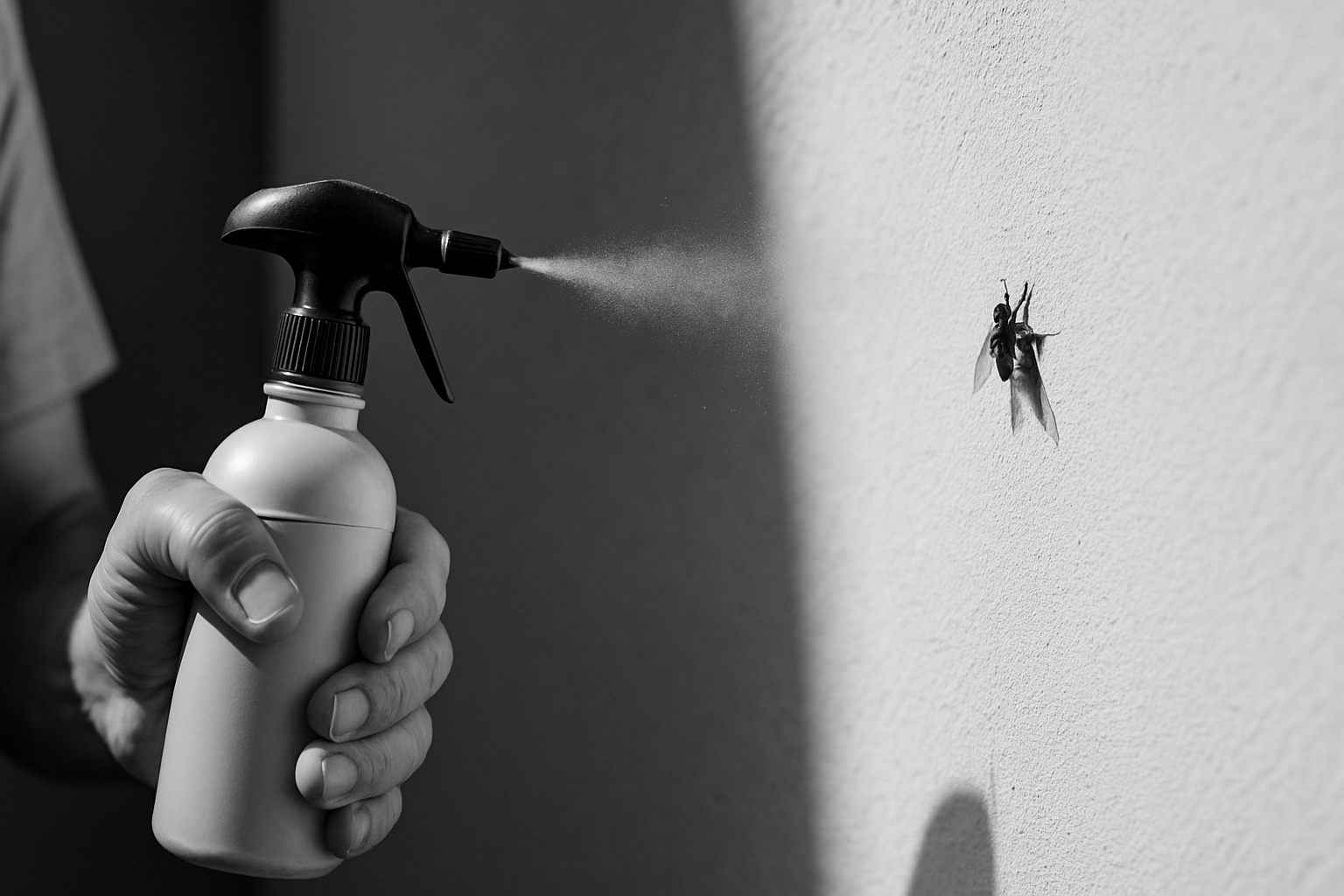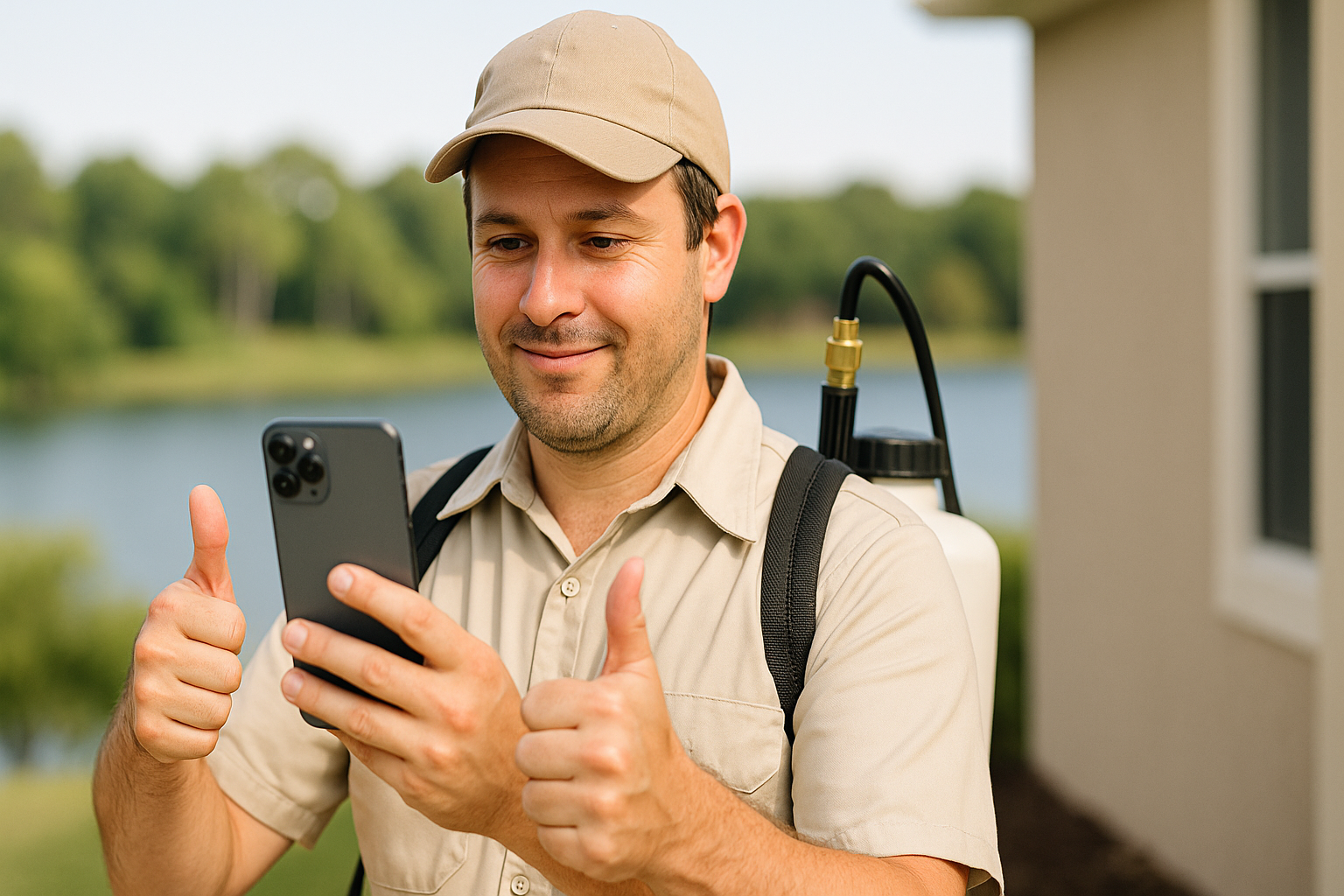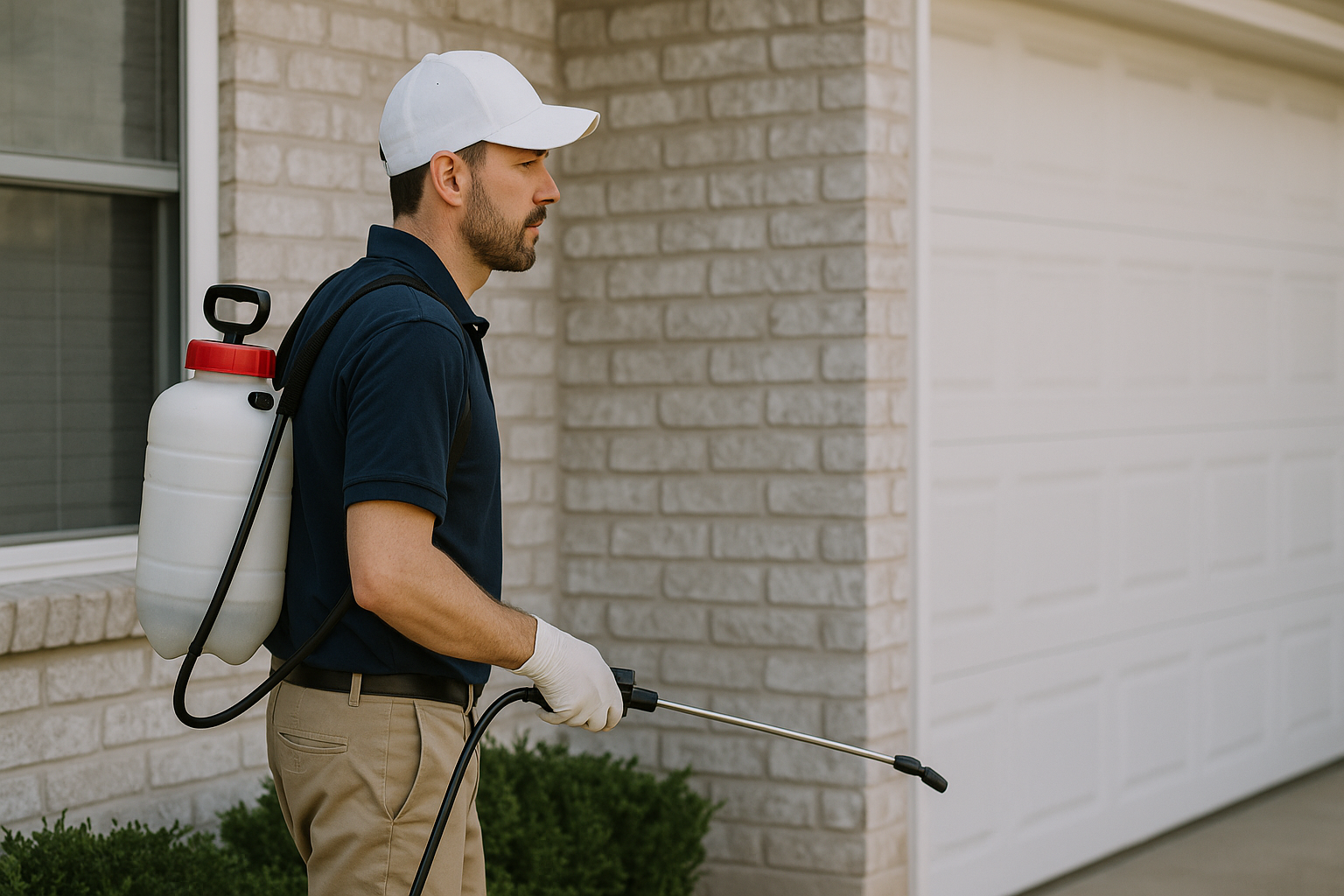Table of Contents
Understanding Insect Control
Insect Control is a critical aspect of maintaining hygiene and health standards within residential, commercial, and industrial environments across the UAE. The hot and arid climate of cities like Dubai, Abu Dhabi, and Sharjah often creates favorable conditions for various insect species to thrive. Proper insect control not only preserves comfort and safety but also protects public health by minimizing risks associated with insect-borne diseases.
Insect Control involves a combination of preventive, mechanical, biological, and chemical techniques designed to reduce insect populations and limit their access to human habitats. Given the unique climatic and regulatory landscape in the UAE, effective insect control strategies must be tailored to local conditions, considering factors such as environmental sustainability, health regulations, and community acceptance.
Incorporating the right insect control measures boosts public health safety standards, especially in sectors like food processing, hospitality, healthcare, and residential developments. It also plays an integral role in compliance with UAE municipal regulations and helps maintain the reputation and operational continuity of businesses.
Common Insects in UAE Environments
The diverse urban and desert landscapes across the UAE provide a habitat for various insects that commonly require control interventions. Some of the most prevalent pests include:
- Cockroaches: Known for spreading pathogens, cockroaches thrive in warm, moist environments such as kitchens and waste areas.
- Termites: A serious threat to wooden infrastructure and furniture, termites can cause significant property damage if left unchecked.
- Flies: House flies and fruit flies contaminate food environments and contribute to the spread of disease.
- Bed Bugs: Common in hotels and residential properties, these insects cause discomfort and skin irritation.
- Mosquitoes: While less prevalent in dry desert areas, mosquitoes are still a concern in irrigated landscapes and near water sources.
- Ants: Various ant species invade homes and commercial spaces seeking food.
Recognizing these common insects helps in selecting tailored and effective insect control strategies to address their specific behaviors and habitats.
Modern Methods of Insect Control
Insect Control has evolved significantly with advancements in technology and increased awareness of environmental sustainability and human safety. Here are some modern methods in use throughout the UAE:
Integrated Pest Management (IPM)
Integrated Pest Management is a holistic approach that combines biological, cultural, mechanical, and chemical practices to control insect populations effectively and sustainably. IPM aims to minimize the use of chemical pesticides by focusing on prevention, monitoring, and direct intervention only when necessary.
For example, in urban areas of Dubai, IPM might include habitat modification by eliminating stagnant water sources to reduce mosquito breeding, sealing entrance points to prevent cockroach ingress, and using targeted baits or traps.
Biological Control
This method utilizes natural predators or parasites of insects to manage pest populations. Although less common in urban UAE settings, biological control is gaining traction in agriculture and green spaces due to its eco-friendly nature.
Chemical Control
Chemical insecticides, when used responsibly and in accordance with UAE Ministry of Health and Prevention (MOHAP) and Dubai Municipality guidelines, remain a vital component in insect control programs. Choosing formulations that are approved and applying them under professional supervision ensures safety while maximizing effectiveness.
Physical and Mechanical Measures
Barriers such as screens on windows and doors, insect traps, and manual removal techniques help reduce insect access and presence indoors without relying on chemicals.
Technological Innovations
Recent advancements include electronic insect repellents and smart monitoring systems that detect pest activity in real time, helping in rapid response and reducing overall chemical usage for insect control.
Best Practices for Insect Control Implementation
Successful insect control in the UAE requires a well-structured approach, considering local climate, building design, and operational habits. Below are several best practices to follow:
Regular Inspection and Monitoring
Scheduled inspection routines help detect early signs of infestation, allowing prompt action before the problem escalates. Employing professional pest control services ensures thorough assessment and identification of vulnerable areas.
Sanitation and Waste Management
Maintaining cleanliness around homes, offices, and commercial kitchens is fundamental. Proper waste storage and disposal minimize attractiveness to pests like cockroaches and flies, supporting effective insect control.
Physical Exclusion Techniques
Sealing cracks, installing door sweeps, and maintaining window screens are key strategies to prevent insect ingress. These techniques reduce reliance on pesticides and enhance the overall effectiveness of an insect control plan.
Use of Certified Pest Control Services
Engaging licensed providers compliant with UAE regulatory standards, like those listed on Saniex’s General Pest Control solutions, guarantees that applied methods are safe, effective, and environmentally responsible, ensuring quality insect control.
Environmental Considerations
Whenever chemical methods are necessary, select eco-friendly products and use them sparingly to protect the delicate UAE ecosystems. Awareness campaigns within communities help promote sustainable insect control practices.
Educating Occupants and Staff
Training on proper hygiene and immediate reporting of pest sightings fosters a proactive culture in residential and commercial settings, improving overall insect control outcomes.
| Practice | Key Actions |
|---|---|
| Inspection | Routine checks to detect infestations early |
| Sanitation | Maintain cleanliness and proper waste management |
| Physical Barriers | Seal all entrances and use screens |
| Professional Services | Use licensed pest control firms |
| Eco-Responsibility | Use sustainable products and methods |
| Education | Train residents and staff on pest prevention |
Government Regulations and Safety in Insect Control
Compliance with local regulations is fundamental when implementing insect control measures in the UAE. Authorities such as the Dubai Municipality and the UAE Ministry of Health and Prevention have established stringent guidelines to ensure public health safety and environmental protection.
The Dubai Municipality Public Health Pest Control Section oversees licensing, monitoring, and enforcement related to pest management services. This ensures that insect control activities are performed by certified professionals who follow approved protocols and use authorized products.
Safety considerations include protecting residents, workers, and the environment from harmful exposure to chemicals. Proper communication of hazards, safe handling instructions, and post-treatment precautions are mandatory. Furthermore, restricted use of certain pesticides reflects the UAE’s commitment to sustainable development and biodiversity conservation.
Adhering to these regulations not only safeguards health but also ensures that businesses avoid penalties and maintain consumer trust in their insect control practices.
Conclusion and CTA
Effective insect control is indispensable for health, comfort, and commercial success in the dynamic environments of the UAE. By understanding the common local insect pests and applying integrated, sustainable insect control methods, individuals and organizations can protect their premises efficiently and responsibly.
Implementing best practices such as routine inspections, good sanitation, physical exclusion, and engaging licensed pest control services is key to long-term success. Complying with government safety regulations ensures treatments are both effective and environmentally sound.
To safeguard your home or business with reliable, compliant insect control solutions, explore professional services like those found at Saniex’s General Pest Control solutions. Take the first step towards a pest-free environment today—protection and peace of mind start with expert care.
Advanced Strategies for Effective Insect Control in the UAE
Insect control remains a critical concern in residential, commercial, and industrial environments across the UAE, particularly given the region’s warm climate, which provides ideal breeding grounds for various pests all year round. Effective management of insect populations not only protects buildings and food supplies but also helps prevent the spread of diseases and maintains health and hygiene standards aligned with regulations set by entities like Dubai Municipality and the Ministry of Health and Prevention (MOHAP).
Implementing comprehensive insect control requires a combination of prevention, monitoring, and targeted intervention methods tailored to the unique environmental conditions of the UAE. This section explores advanced strategies designed to optimize insect control efforts with a focus on sustainability, safety, and adherence to local guidelines.
Integrated Pest Management (IPM) in the UAE Context
Integrated Pest Management (IPM) is a holistic approach recommended by health and environmental authorities such as the Dubai Municipality and the Environment Agency – Abu Dhabi (EAD). IPM emphasizes minimizing chemical use while enhancing prevention and control through a sequence of methods:
- Identification and Monitoring: Accurate identification of insect species common to the UAE—such as cockroaches, ants, mosquitoes, and flies—is essential. Regular monitoring with traps and visual inspections ensures early detection.
- Environmental Modification: Adjusting environments to be less attractive or suitable for pests is crucial. This includes eliminating standing water to disrupt mosquito breeding around properties in Dubai or Sharjah, sealing building cracks, and reducing food and water availability for insects.
- Biological Controls: Using natural predators or microbial agents such as Bacillus thuringiensis (Bt) for mosquito larvae can reduce insect populations without harming the ecosystem.
- Responsible Use of Insecticides: When chemical interventions are necessary, selecting products approved by the UAE’s ESMA (Emirates Authority for Standardization and Metrology) and strictly following MOHAP guidelines for safe application is mandatory to avoid health risks.
By combining these strategies, IPM reduces reliance on pesticides while maintaining effective insect control. For example, many hotels and food processing facilities in Dubai and Abu Dhabi have successfully integrated IPM programs, resulting in lower chemical usage and improved compliance with DHA and ADAFSA hygiene standards.
Technological Innovations Enhancing Insect Control
The UAE’s commitment to smart city initiatives has catalyzed the adoption of innovative technologies in pest management, making insect control more efficient and environmentally friendly. Some promising advancements include:
- Smart Trapping Systems: These digital, sensor-enabled traps can detect and capture insects like mosquitoes and flies, transmitting real-time data to pest control operators. This allows for precise targeting of hotspots and timely interventions, reducing unnecessary treatments.
- Ultrasonic Repellents and Light Traps: Non-chemical devices that deter insects by emitting ultrasonic waves or specific light wavelengths are gaining popularity in residential areas and commercial kitchens in the UAE, where chemical use may be restricted.
- Remote Monitoring and Data Analytics: Integration of IoT devices with data platforms enables continuous monitoring of insect activity, helping facilities in Dubai’s free zones or government complexes to anticipate outbreaks and respond proactively.
These technologies align with sustainability goals promoted by UAE regulators, such as the Dubai Clean Energy Strategy and Abu Dhabi’s Environment Vision 2030, by reducing environmental impact and improving public health outcomes.
Compliance with UAE Regulatory Standards for Insect Control
All insect control operations must adhere to regulations laid down by UAE authorities to ensure public safety and environmental protection. The Dubai Municipality’s Pest Control Division and the Department of Health in Abu Dhabi regularly update their guidelines based on international best practices adapted for local conditions.
Key requirements include:
- Use of licensed and approved chemical agents registered with ESMA and accredited by MOHAP.
- Training and certification of pest control technicians through programs recognized by the Dubai Economic Department (DED) or equivalent in other emirates.
- Documentation and reporting of control activities to comply with health inspections, particularly in food establishments governed by ADAFSA and the Ministry of Climate Change and Environment (MOCCAE).
- Safe disposal of insecticide containers and unused chemicals following UAE’s hazardous waste management codes.
By strictly following these standards, businesses in Abu Dhabi, Sharjah, and across the UAE not only protect their premises from insect infestations but also contribute to the broader goals of public health and environmental stewardship.
Community Engagement and Public Awareness
Effective insect control extends beyond professional services to include community participation and awareness, particularly in densely populated areas such as Dubai’s residential neighborhoods or Ras Al Khaimah’s industrial zones. Public education campaigns, often led by local municipalities, emphasize the importance of sanitation, proper waste management, and water storage practices to reduce breeding sites.
Residents can actively contribute by:
- Regularly cleaning surroundings and clearing stagnant water.
- Ensuring garbage bins are covered and properly managed.
- Reporting sightings of unusual insect activity to municipal pest control departments.
These collective efforts amplify the effectiveness of technical insect control measures, leading to healthier living and working environments throughout the UAE.
In conclusion, the synergistic application of Integrated Pest Management, cutting-edge technologies, strict regulatory compliance, and community involvement forms the foundation of successful insect control in the UAE. As challenges evolve with urban expansion and climate variability, continuous adaptation and innovation will be pivotal to safeguarding public health and maintaining economic vitality across the emirates.





